
Course Summary: 1.0 CEUs – Crop Management
Enrollment Fee: $10
Course Number: 25CMC-CM-58219
Connor Sible, a research assistant professor at the University of Illinois, discusses top management decisions for corn and soybean in 2025. He emphasizes the importance of hybrid selection, nutrient management, and foliar protection for corn, and highlights the significance of planting date, variety selection, and fertility management for soybean. Sible also acknowledges the contributions of his team and the importance of field trials across different regions in Illinois to gather comprehensive data for these recommendation
This presentation was originally produced for the 2025 Crop Management Conference. If you received CEUs for this presentation while attending that conference, you are not eligible for additional CEUs for completing this course module. If you would like to view this presentation and do not need CEUs, it can be viewed here.
For questions about the course, please contact Megan Weber (megannr2@illinois.edu).

Course Summary: 1.0 CEUs - Crop Management
Enrollment Fee: $10
Course Number: 25CMC-CM-58217
Carl Bradley discusses plant diseases, focusing on Fusarium Head Blight in wheat and Red Crown Rot in soybeans. He discusses the causes, symptoms, and management strategies for these diseases, emphasizing the importance of integrated disease management. For Fusarium Head Blight, Bradley discusses the role of the fungus Fusarium graminearum, the production of harmful mycotoxins like deoxynivalenol (DON), and the effectiveness of fungicides and resistant varieties. For Red Crown Rot, he covers the reddish discoloration of stems and roots, the patchy distribution in fields, and preliminary research on fungicide efficacy.
This presentation was originally produced for the 2025 Crop Management Conference. If you received CEUs for this presentation while attending that conference, you are not eligible for additional CEUs for completing this course module. If you would like to view this presentation and do not need CEUs, it can be viewed here.
For questions about the course, please contact Megan Weber (megannr2@illinois.edu).

Course Summary: 1.0 CEUs –Crop Management
Enrollment Fee: $10
Course Number: 25CMC-CM-58216
Dr. Karla Gage, an Associate Professor of Weed Science and Plant Biology at Southern Illinois University - Carbondale, discusses her research on weed control. She covers topics such as herbicide resistance, integrated weed management, and new technologies like AI-driven weed detection and weed electrocution. The presentation includes AI-generated images for entertainment and highlights the importance of diverse herbicide strategies and seed bank management to combat resistant weed species effectively.
This presentation was originally produced for the 2025 Crop Management Conference. If you received CEUs for this presentation while attending that conference, you are not eligible for additional CEUs for completing this course module. If you would like to view this presentation and do not need CEUs, it can be viewed here.
For questions about the course, please contact Megan Weber (megannr2@illinois.edu).

Course Summary: 1.0 CEUs – Crop Management
Enrollment Fee: $10
Course Number: 25CMC-CM-58215
Dennis Bowman highlights the transformative role of AI in agriculture, focusing on innovations like machine learning, computer vision, and robotics. He discusses the AIFARMS project, which aims to improve food security and sustainability through AI. Key applications include predictive analytics, autonomous machinery, and precision livestock management, addressing challenges like climate change and resource management. The presentation also covers successful AI implementations and future prospects in farming.
This presentation was originally produced for the 2025 Crop Management Conference. If you received CEUs for this presentation while attending that conference, you are not eligible for additional CEUs for completing this course module. If you would like to view this presentation and do not need CEUs, it can be viewed here.
For questions about the course, please contact Megan Weber (megannr2@illinois.edu).

Course Summary: 1.0 CEUs – Crop Management
Enrollment Fee: $10
Course Number: 25CMC-CM-58213
Aaron Hager discusses the history and current status of resistance to Group 15 herbicides, particularly in Illinois waterhemp populations. He highlights the importance of understanding resistance mechanisms, such as enhanced herbicide metabolism, and the implications for herbicide efficacy and management practices. The recording also covers the methodology and preliminary results of ongoing research to document the extent of Group 15 resistance. Finally, Aaron discussed the use of metribuzin as an effective pre-emergence herbicide for controlling herbicide-resistant amaranthus populations, emphasizing the need for appropriate application rates to achieve effective control.
This presentation was originally produced for the 2025 Crop Management Conference. If you received CEUs for this presentation while attending that conference, you are not eligible for additional CEUs for completing this course module. If you would like to view this presentation and do not need CEUs, it can be viewed here.
For questions about the course, please contact Megan Weber (megannr2@illinois.edu).

Course Summary: 1.0 CEUs – Crop Management
Enrollment Fee: $10
Course Number: 25CMC-CM-58211
Dr. Boris Camiletti, an Extension plant pathologist at the University of Illinois, discusses various plant diseases affecting corn and soybean in Illinois. He highlights the prevalence and management of diseases such as tar spot, northern corn leaf blight, southern rust in corn, and red crown rot, Cercospora leaf blight, and frogeye leaf spot in soybeans. Dr. Camiletti emphasizes the importance of disease identification, scouting, and timely fungicide application, along with the use of resistant hybrids and seed treatments to manage these diseases effectively. He also introduces tools like the Field Prophet app for disease prediction and underscores the significance of ongoing research and trials to improve disease management strategies
This presentation was originally produced for the 2025 Crop Management Conference. If you received CEUs for this presentation while attending that conference, you are not eligible for additional CEUs for completing this course module. If you would like to view this presentation and do not need CEUs, it can be viewed here.
For questions about the course, please contact Megan Weber (megannr2@illinois.edu).

1.0 CEUs – Crop Management
Enrollment Fee: $10
Course Number: 25CMC-CM-58206
The presentation focuses on the agronomics of corn and soybean production, reviewing the 2024 growing season's planting, maturing, and harvesting processes. It highlights the impact of weather conditions on crop development, discusses planting dates, seeding rates, and the use of biological seed treatments. The presentation also covers yield responses to various management practices and provides recommendations for maximizing profitability in the 2025 growing season
This presentation was originally produced for the 2025 Crop Management Conference. If you received CEUs for this presentation while attending that conference, you are not eligible for additional CEUs for completing this course module. If you would like to view this presentation and do not need CEUs, it can be viewed here.
For questions about the course, please contact Megan Weber (megannr2@illinois.edu).
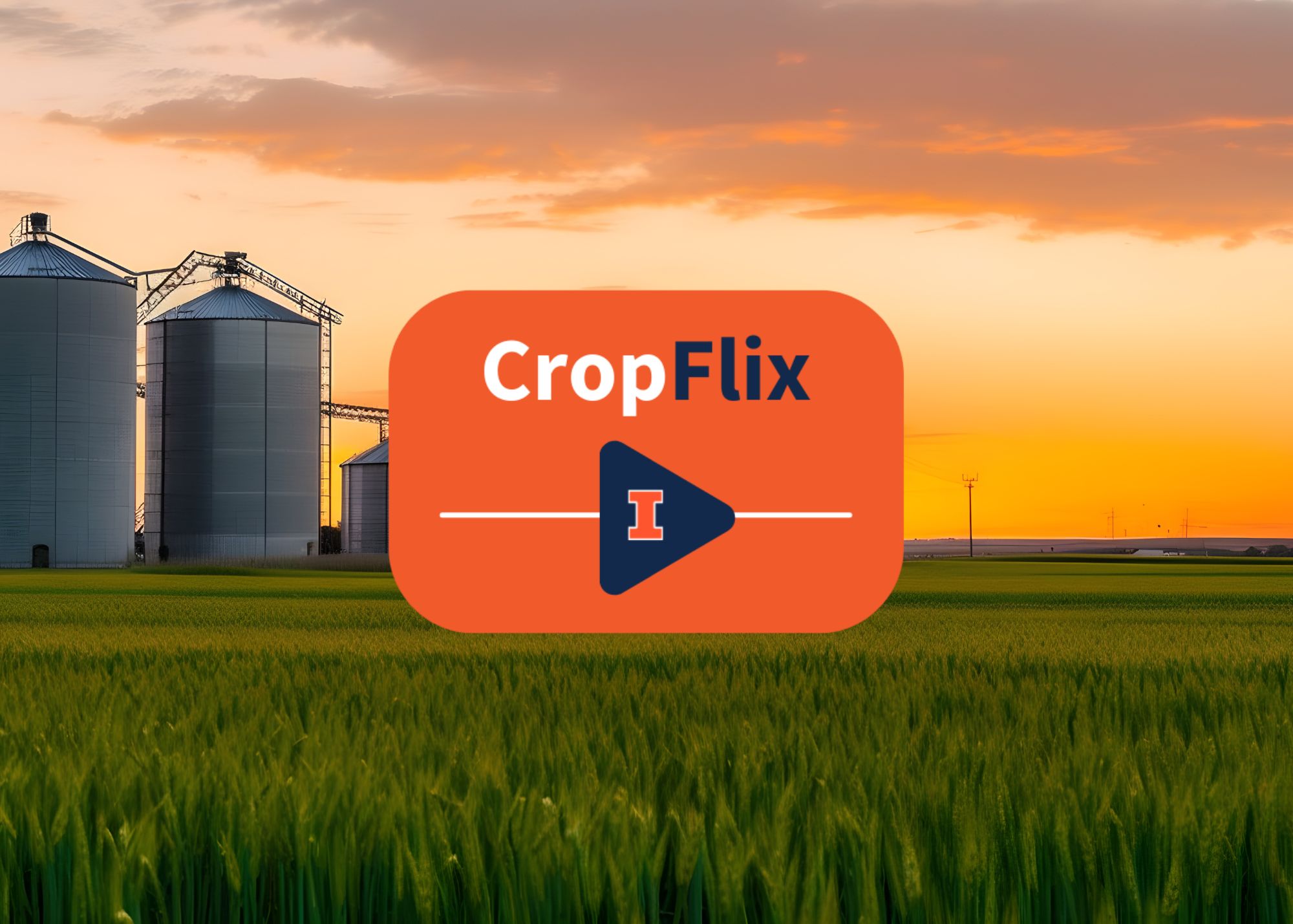
1.0 CEUs – Crop Management
Enrollment Fee: $10
Course Number: 24CMC-CM-57649
Giovani Preza Fontes is an Assistant Professor and Extension Field Crop Specialist with the University of Illinois. In this presentation, Preza Fontes discusses the benefits and management of cover crops, emphasizing their role in reducing soil erosion, suppressing weeds, and enhancing soil organic matter. He highlights the Illinois Nutrient Loss Reduction Strategy's goals and shares research data demonstrating the effectiveness of cover crops in reducing nutrient losses. Practical management tips and resources for implementing cover crops are also provided.
This presentation was originally produced for the 2024 Crop Management Conference. If you received CEUs for this presentation while attending that conference, you are not eligible for additional CEUs for completing this course module. If you do not need CEUs, use this link to view the presentation.
For questions about the course, please contact Megan Weber (megannr2@illinois.edu).
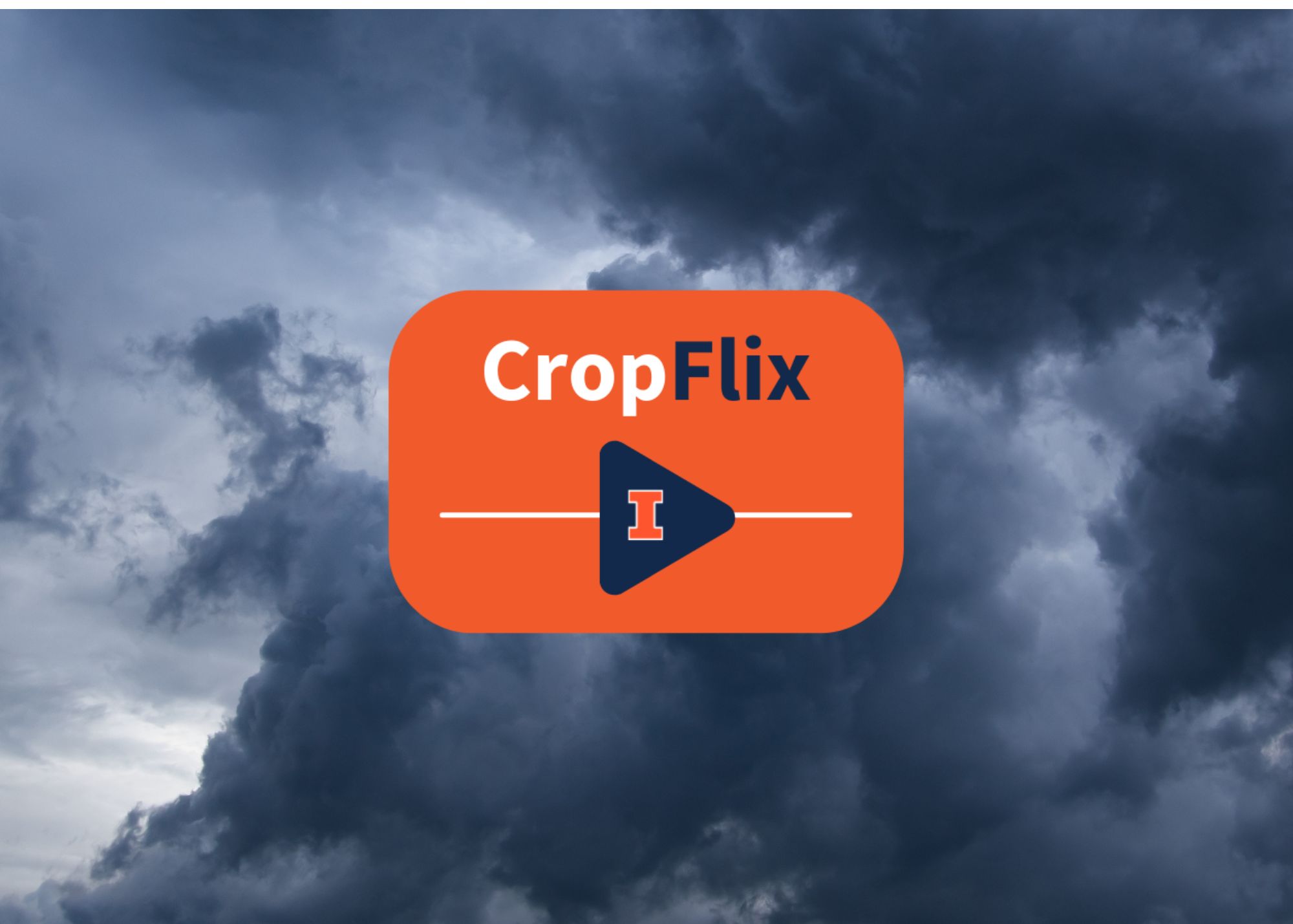
1.0 CEUs – Crop Management
Enrollment Fee: $10
Course Number: 24CMC-CM-57629
Trent Ford is the state climatologist at the University of Illinois. In this presentation, Ford discusses utilizing weather and climate information for agricultural management. He highlights various tools and services, such as the Midwestern Regional Climate Center's cli-MATE system, the State Climatologist Office's maps and drought monitoring, and the Climate Prediction Center's outlooks. Ford emphasizes the importance of feedback from the agricultural community and encouraged participation in monitoring programs like CMOR and CoCoRaHS to improve climate services.
This presentation was originally produced for the 2024 Crop Management Conference. If you received CEUs for this presentation while attending that conference, you are not eligible for additional CEUs for completing this course module. If you do not need CEUs, use this link to view the presentation.
For questions about the course, please contact Megan Weber (Email "megannr2@illinois.edu").
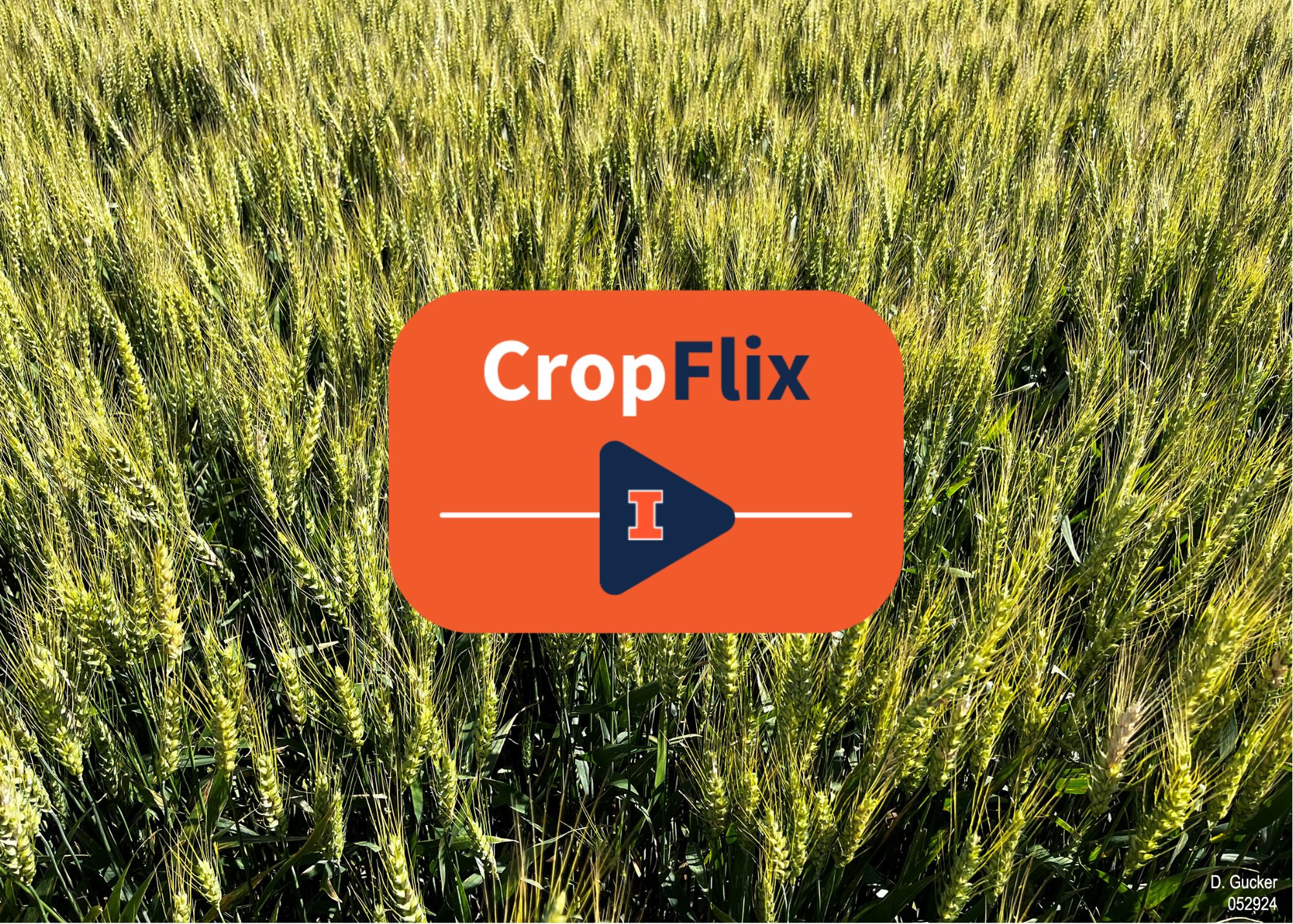
0.5 CEUs – Crop Management
Enrollment Fee: $5
Course Number: 24CMC-CM-57742
Jessica Rutkoski is an Assistant Professor and wheat breeder at the University of Illinois. In this presentation, Rutkoski discusses advancements in wheat genetics and management, focusing on the profitability of wheat and double crop soybean systems in Illinois. She highlights key factors affecting profitability, such as yield, test weight, vomitoxin levels, and early harvest, and emphasizes the importance of selecting the best wheat varieties and implementing proper management practices.
This presentation was originally produced for the 2024 Crop Management Conference. If you received CEUs for this presentation while attending that conference, you are not eligible for additional CEUs for completing this course module. If you would like to view this presentation and do not need CEUs, it can be viewed here.
For questions about the course, please contact Megan Weber (megannr2@illinois.edu).
1.0 CEUs – Crop Management
Enrollment Fee: $10
Course Number: 25CMC-CM-58209
Trent Ford is the State Climatologist at the University of Illinois. Ford discusses the causes and impacts of wind in Illinois, emphasizing its effects on agriculture and infrastructure. He explains that wind results from pressure differences and varies seasonally, with the strongest winds in spring. Ford highlights strategies to mitigate wind damage, such as using windbreaks and maintaining soil cover, and addresses the challenges of linking wind events to climate change.
This presentation was originally produced for the 2025 Crop Management Conference. If you received CEUs for this presentation while attending that conference, you are not eligible for additional CEUs for completing this course module. If you would like to view this presentation and do not need CEUs, it can be viewed here.
For questions about the course, please contact Megan Weber (megannr2@illinois.edu).
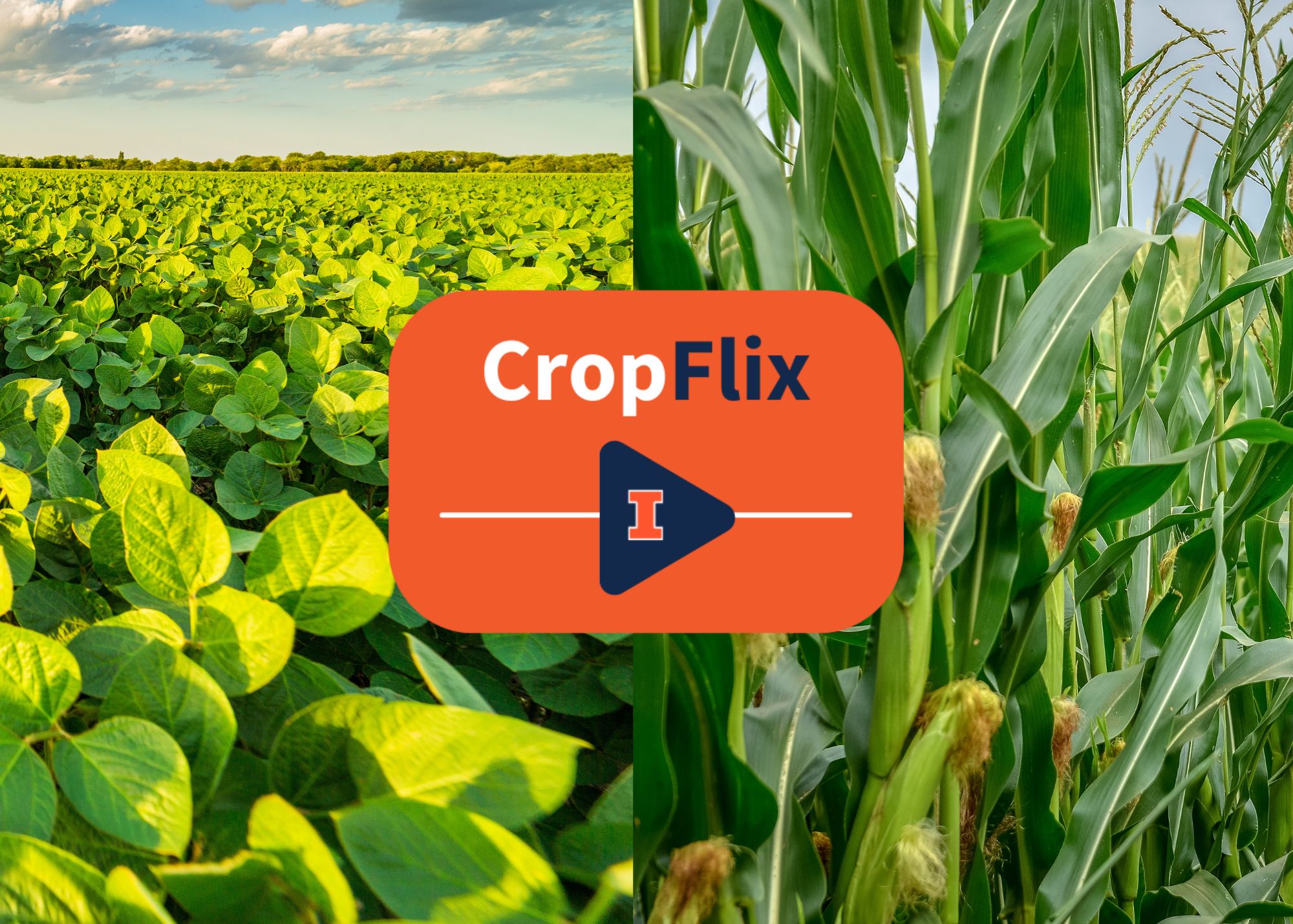
1.0 CEUs – Crop Management
Enrollment Fee: $10
Course Number: 23CMC-CM-57136
Emerson Nafziger is a Professor Emeritus and retired Extension Agronomist for the University of Illinois. In this presentation, Nafziger discusses the unusual 2022 growing season and its implications for agronomic decisions in 2023. It covers the planting, development, and harvest of corn and soybeans, highlighting the impact of weather patterns, particularly rainfall, on crop performance. The presentation also examines nitrogen management, planting dates, and the use of new technologies like Pivot Bio and short corn hybrids. Overall, it emphasizes the importance of adapting strategies based on the previous year's experiences to optimize future crop yields.
This presentation was originally produced for the 2023 Crop Management Conference. If you received CEUs for this presentation while attending that conference, you are not eligible for additional CEUs for completing this course module. If you do not need CEUs, use this link to view the presentation.
For questions about the course, please contact Megan Weber (megannr2@illinois.edu).
1.0 CEUs – Crop Management
Enrollment Fee: $10
Course Number: 23CMC-CM-57132
Giovani Preza Fontes is an Assistant Professor and Extension Field Crop Specialist with the University of Illinois. In this presentation, Preza Fontes discusses a three-year study on reducing nitrate leaching using in-season split nitrogen application and cereal rye cover crops. The study finds that these practices significantly reduce nitrate leaching without negatively impacting corn yields when managed properly.
This presentation was originally produced for the 2023 Crop Management Conference. If you received CEUs for this presentation while attending that conference, you are not eligible for additional CEUs for completing this course module. If you would like to view this presentation and do not need CEUs, it can be viewed here.
For questions about the course, please contact Megan Weber (megannr2@illinois.edu).

Enrollment Fee: $10
Couse Number: 21CMC-CM-56621
Trent Ford is the state climatologist at the University of Illinois. In this video, Ford discusses the impacts of climate change on agriculture in Illinois. He emphasizes the importance of understanding both the known and uncertain aspects of climate change, and how it affects agricultural decisions. The talk covers trends in temperature and precipitation, the challenges posed by extreme weather, and the need for sustainable management practices to ensure long-term productivity and profitability in the face of a changing climate.
This presentation was originally produced for the 2021 Crop Management Conference. If you received CEUs for this presentation while attending that conference, you are not eligible for additional CEUs for completing this course module. If you would like to view this presentation and do not need CEUs, it can be viewed here. https://mediaspace.illinois.edu/media/t/1_9tnehm0x
https://registration.extension.illinois.edu/start/cropflix-agriculture-in-a-changing-climate-21cmc-cm-56621
For questions about the course, please contact Megan Weber (megannr2@illinois.edu).
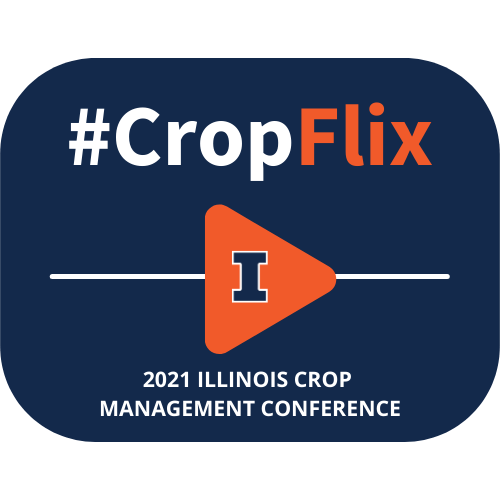
Dr. Emerson Nafziger reviews how corn and soybean yields (by region) and weather have changed in Illinois over the past 40 years, and shows how that information can be used to develop weather-yield models for each crop. He then discusses global climate change, including causes and current trends in temperatures and in CO2 concentration in the atmosphere. Illinois weather, predicted under climate change through 2075, were used along with the models developed to predict yield trends over the next 55 years.
This presentation was originally produced for the 2021 Virtual Crop Management Conference. If you received CEUs for this presentation while attending that conference, you are not eligible for additional CEUs for completing this course module. If you would like to view this presentation and do not need CEUs, it can be viewed here.
1.0 CEU - Crop Management

Dr. Emerson Nafziger reviews how Illinois corn and soybean yields are expected to change over the coming decades, how crop management has changed to support recent increases in crop yield in Illinois, and how management may need to change over the coming decades to support changes in crop yields.
This presentation was originally produced for the 2021 Virtual Crop Management Conference. If you received CEUs for this presentation while attending that conference, you are not eligible for additional CEUs for completing this course module. If you would like to view this presentation and do not need CEUs, it can be viewed here.
0.5 CEUs - Crop Management

Grain entrapment is an agricultural injury in which a person enters a grain bin or silo to dislodge a blockage caused by out-of-condition grain and becomes partially or fully entrapped or engulfed in grain. Each year in the US, approximately 30-grain entrapments occur, with roughly 50% of the people entrapped dying. In this session, Dr. Salah Issa explores these incidents and tries to provide answers regarding the cause of injury and death in grain entrapment, engulfment, and extrication.
This presentation was originally produced for the 2021 Virtual Crop Management Conference. If you received CEUs for this presentation while attending that conference, you are not eligible for additional CEUs for completing this course module. If you would like to view this presentation and do not need CEUs, it can be viewed here.
0.5 CEUs - Crop Management

Mr. Philip Alberti discusses the current status of industrial hemp in Illinois, focusing on the various hemp production strategies and research efforts being conducted for grain, fiber, and cannabinoid production.
This presentation was originally produced for the 2021 Virtual Crop Management Conference. If you received CEUs for this presentation while attending that conference, you are not eligible for additional CEUs for completing this course module. If you would like to view this presentation and do not need CEUs, it can be viewed here.
0.5 CEUs - Crop Management
